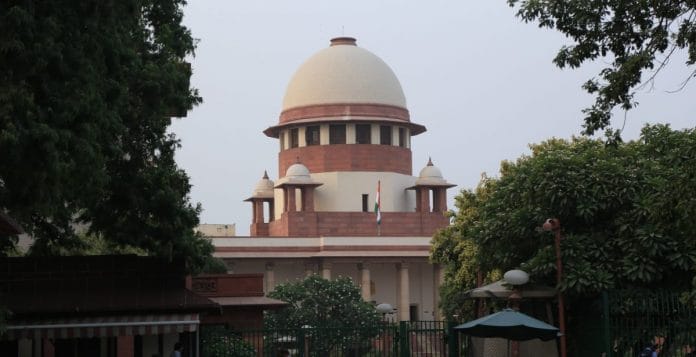In a 2-1 ruling, the SC bench led by CJI Dipak Misra extended the house arrest of the five activists in the Bhima-Koregaon case by four weeks.
New Delhi: The Supreme Court Friday refused to interfere in the arrest of the five activists named in the Bhima-Koregaon violence case and denied their plea seeking a Special Investigation Team (SIT) probe into the arrests.
In a 2-1 ruling, the bench, led by Chief Justice of India Dipak Misra, also extended the house arrest of the activists — Sudha Bharadwaj, Varavara Rao, Gautam Navlakha, Vernon Gonsalves and Arun Ferreira — by four weeks.
Here are some key observations the bench made, excerpted from the judgment:
Also read: Supreme Court refuses special probe into arrest of five activists in Bhima-Koregaon case
“After the high-pitched and at times emotional arguments concluded, each side presenting his case with equal vehemence, we as judges have had to sit back and ponder over as to who is right or whether there is a third side to the case.”
“In the present case, except pointing out some circumstances to question the manner of arrest of the five named accused sans any legal evidence to link them with the crime under investigation, no specific material facts and particulars are found in the petition about mala fide exercise of power by the investigating officer. A vague and unsubstantiated assertion in that regard is not enough.”
“Rather, averment in the petition as filed was to buttress the reliefs initially prayed (mentioned in para 7 above) – regarding the manner in which arrest was made. Further, the plea of the petitioners of lack of evidence against the named accused (A16 to A20) has been seriously disputed by the Investigating Agency and have commended us to the material already gathered during the ongoing investigation which according to them indicates complicity of the said accused in the commission of crime.” (sic)
“Upon perusal of the said material, we are of the considered opinion that it is not a case of arrest because of mere dissenting views expressed or difference in the political ideology of the named accused, but concerning their link with the members of the banned organisation and its activities.”
“This is not the stage where the efficacy of the material or sufficiency thereof can be evaluated nor it is possible to enquire into whether the same is genuine or fabricated. We do not wish to dilate on this matter any further lest it would cause prejudice to the named accused and including the co-accused who are not before the Court.”
“We would, therefore, assume that the writ petition is now pursued by the accused themselves and once they have become petitioners themselves, the question of next friend pursuing the remedy to espouse their cause cannot be countenanced. The next friend can continue to espouse the cause of the affected accused as long as the concerned accused is not in a position or incapacitated to take recourse to legal remedy and not otherwise.”
“A fortiori (for a stronger reason), it must follow that the writ petitioners, who are strangers to the offence under investigation (in FIR No.4/2018); and since they are merely espousing the cause of the arrested five accused as their next friends, cannot be heard to ask for the reliefs which otherwise cannot be granted to the accused themselves. What cannot be done directly, cannot be allowed to be done indirectly even in the guise of public interest litigation.”
“In view of the above, we have advisedly refrained from dealing with the factual issues raised by the parties and including the named accused represented by their counsel before us, as any observation made by this court may cause serious prejudice to them or the co-accused who are not before this court or, for that matter, the prosecution case, resulting in serious miscarriage of justice.”
Also read: No legal basis for Supreme Court’s house arrest order in Bhima-Koregaon case
“The said proceedings shall be decided on its own merits uninfluenced by any observation made in this judgment, which is limited to the reliefs claimed in the writ petition to transfer the investigation to an independent Investigating Agency and/or Court monitored investigation. The Investigating Officer is free to proceed against the concerned accused as per law.”
“In view of the above, it is clear that the consistent view of this Court is that the accused cannot ask for changing the Investigating Agency or to do investigation in a particular manner including for Court monitored investigation”.






